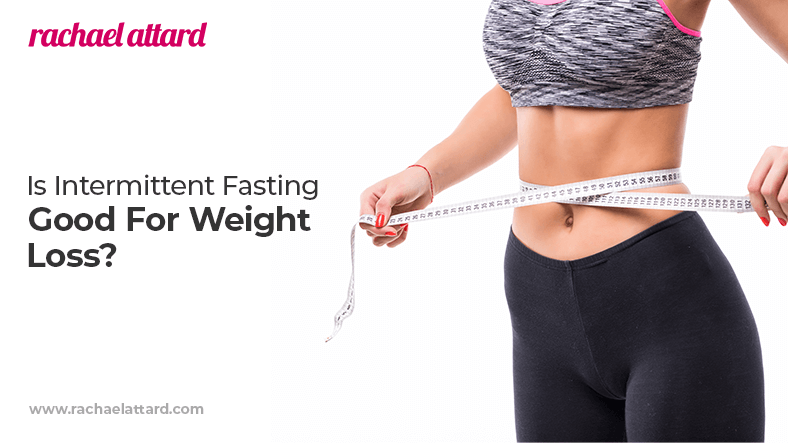
There are many unexpected benefits of weight loss, from improved mood to improved self-esteem. There are also financial rewards depending on how much weight is lost. This article will outline some of them. Remember that weight loss can be costly. It is important you understand all financial implications. The benefits of weight loss can be more beneficial than the negatives. By understanding the financial benefits of losing weight, you can decide if it is worth it for you to undergo this change.
Positive effects on mood
There are many advantages to losing weight. But, there is also downside to western-style food. Western-style diets tend to be high in processed food and low in fruits or vegetables. This can lead to poor mood. Studies also show that diets high in carbohydrate and high-glycemic load are associated with lower mood. Mediterranean-style food is rich in vegetables and fruits, as well as nuts and whole grains. It also has low levels of fat and carbohydrates.
Enhance self-esteem
A healthy diet and regular exercise can help you lose weight, and it will make you feel better in the process. Regular exercise boosts the feel-good hormones in your brain and improves mood. Many anti-depressant medicines target these neurotransmitters. Regular exercise is a great way to boost self-esteem. But how can you naturally improve it? Here are five things you can do to boost self-esteem. You should also reward yourself for your efforts.

Reduced risk of developing chronic disease
The federal government has many roles in the fight against diet-related chronic diseases. A large proportion of Americans are affected by chronic diet-related diseases. These diseases are among the leading causes and consequences of disability and death. This issue has been addressed by more than 200 government initiatives and studies, which have produced disparate results. Additionally, gaps exist in important scientific research. This could make these efforts more efficient if agencies collaborate more.
Improves insulin sensitivity
Since long ago, people have known that high-carb diets can cause blood sugar levels to rise, which causes the pancreas pressure to remove sugar from their bloodstream. However, there are several ways to increase insulin sensitivity, including eating smaller portions of carbohydrates and reducing your overall intake of fat. Also, you can try foods with low glycemicindex, as these carbohydrates slowly release sugar into the bloodstream, giving insulin more time and energy to work.
Lowers blood pressure
Exercise can have many health benefits including lowering blood pressure. Research shows that one pound of weight loss can drop blood pressure by five to 20 points depending upon the body mass. Because exercise can reduce blood vessel stiffness, it can lower blood pressure. These effects are most apparent during and shortly after workouts. Fitness can also be improved by exercising. Even though it won't be as dramatic a weight loss as a weight gain, it can still help to prevent heart disease and stroke.
Increases heart health
Losing weight can improve your heart health, contrary to what you might think. Being overweight can cause unnecessary stress to the heart, making it work harder. This will eventually lead to heart diseases. These tips will show you how to lose weight for your heart. Learn more about how losing weight can benefit your heart. Below are eight tips for improving your heart health.

Lowers your risk of developing diabetes
According to the National Diabetes Prevention Program, a program that focuses on lifestyle changes to reduce diabetes risk, losing 5-7% of body weight and getting 150 minutes of exercise each week can dramatically lower your risk of developing type 2 diabetes. Study participants had a one-third lower chance of developing the disease after ten year. It can also lower your risk of developing heart disease and reverse prediabetes. Although these changes sound simple, they can be challenging to implement.
FAQ
Is there a difference in intermittent fasting and calorie restrictions?
Calorie restriction is when you eat less than your body needs. Intermittent fasting, on the other hand, doesn't restrict calories. It focuses on eating fewer calories during the day.
Intermittent fasting can be more effective as it allows you to eat the foods you love and not feel guilty.
However, both methods have their pros and cons. You have to decide which method you prefer.
How long does weight loss take?
It takes time for weight loss. It usually takes six months to lose 10% of your total weight.
You shouldn't expect weight loss overnight. Your body will take time to adjust to changes in diet.
This means that you need to slowly change your diet over a period of time, such as a few days or weeks.
Fad diets should be stopped as they are often not effective. Instead, try to change your daily routine.
If you eat unhealthy snacks at night, you might want to cut back.
It is better to eat healthier meals early in the evening. This will prevent you from snacking late at night.
Water is essential for your body. Water keeps you hydrated and prevents your body from becoming dehydrated. You feel tired and slow if you are dehydrated.
Therefore, drinking lots of water throughout the day will help you stay energized and focused.
Doing things that are relaxing can help you reduce stress. You can spend time with family members, for example.
You could also read books or watch movies, or listen to music.
These activities will help relieve stress. In addition, they will improve your mood and boost your self-esteem.
You should consider your health when trying to lose weight.
Your physical fitness level is an indicator of your overall health. Regular exercise and proper nutrition are key to getting fit.
What foods help me lose weight faster?
Consuming fewer calories is a great way to lose weight quickly. There are two methods to accomplish this.
-
Reduce the amount of calories that you consume each day.
-
Get more exercise to increase your metabolism.
It's not difficult to cut down on the amount of calories you eat. There are calorie-laden fast food options all around us. Here's a list that will help you lose weight.
-
Beans are high in fiber and protein. They are low in calories, so they're a good choice for people who want to lower their caloric intake.
-
Oatmeal is low in calories but high in nutrients like magnesium and potassium. Plus, it contains less sugar than other cereals.
-
Eggs are full of cholesterol and protein. Consuming eggs at least once a week can increase your metabolism and help you burn more calories.
-
Whole grain bread has been shown to reduce hunger pangs so that you may feel fuller longer.
-
Dark chocolate is full of antioxidants. Flavonoids have been linked to lower blood sugar and improved heart health.
-
Cottage cheese is high in calcium, which helps to build strong bones. It also provides a good source of vitamin D, which boosts immunity.
-
Omega-3 fatty Acids are a key component of salmon. They promote brain development, and improve cardiovascular function.
-
Green tea is rich in catechins, compounds which fight cancer and increase metabolism.
-
Broccoli is rich in folic Acid, which lowers homocysteine blood levels. High homocysteine levels have been associated with an increased risk of stroke and heart disease.
-
Yogurt is an excellent way to include probiotics in your diet without adding sugars. Probiotics can help improve digestive health.
-
Berries can be a healthy snack choice that tastes great and is very nutritious. Blueberries (strawberries), blackberries; raspberries and cranberries all provide excellent sources of vitamins.
-
Avocados are high in healthy fats. A half avocado contains 80 calories and plenty of fiber.
-
Nuts make a delicious snack and are also a good source of protein. You can choose from cashews or hazelnuts, almonds, walnuts or pecans.
-
Sweet potatoes are another starchy vegetable that's packed with beta carotene, which makes your skin glow. The orange sweet potato variety has a higher level of beta-carotene than regular sweet potato varieties.
What amount of exercise is necessary to lose weight?
There are many factors that influence the amount of exercise required to lose weight. These include your gender, age, body type and how heavy you are. However, generally speaking, most people need at least 30 minutes of moderate physical activity five days per week.
The American College of Sports Medicine recommends that you do 150 minutes of moderate intensity aerobic activity per week. This should be spread over three days.
You can lose 10 pounds by doing 300 minutes of moderate-intensity exercises each week, for example. This includes activities such brisk walking and swimming laps, bicycling, dancing, playing tennis or golfing, hiking, running, jogging and other similar activities.
Start out with 20 minutes of vigorous physical activity three times weekly if you're just getting started. You could do sprints, lifting weights or jumping rope.
Aerobic exercise can help burn calories as well as build muscle mass. Muscles burn more calories than fat. You may be able to achieve your goal quicker by building muscle and losing fat.
Statistics
- It's estimated that half of all American adults attempt to lose weight every year (1Trusted (healthline.com)
- According to a study sponsored by the American Council on Exercise, a person weighing around 140 pounds (64 kg) would burn 108 calories at a 30-minute beginner's Pilates class or 168 calories at an advanced class of the same duration (26). (healthline.com)
- Another study found that 24 weeks of weight training led to a 9% increase in metabolic rate among men, which equated to burning approximately 140 more calories per day. (healthline.com)
- According to Harvard Health, it's estimated that a 155-pound (70-kg) person burns around 167 calories per 30 minutes of walking at a moderate pace of 4 mph (6.4 km/h) (5). (healthline.com)
External Links
How To
How to do Intermittent Fasting (IF)
Intermittent Fasting is a method of dieting where you only eat one meal per week, typically Monday through Friday. The goal is to decrease your overall calories and still get adequate nutrition. This helps you lose fat more quickly than if it were your normal meals for the entire week.
The most common form is to limit calories for certain days. This means that you might skip breakfast every day and then indulge in whatever food you desire throughout the day. You could also choose three small meals instead of two large meals per day.
You can choose from many different types of intermittent fasting such as alternate day fasting (alternative day fasting), 5/2 fasts (8/4 fasts), 16/8 fasts, and so on. There are pros and con's to every type of intermittent fasting. Alternate-day fasting is the easiest method to get started because it doesn't require any significant lifestyle changes. However, some people find it difficult to stick to a strict schedule like this, so they might prefer to try other methods first.
If you are interested in starting an intermittent fasting regime, I recommend beginning with alternate-dayfasting. This will allow to slowly transition to more extreme fasting regimens without drastically changing your lifestyle.